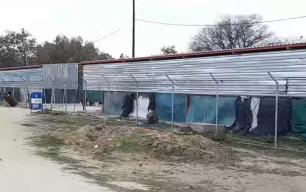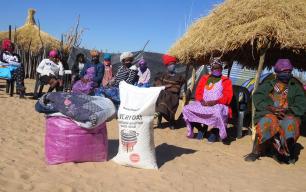Poultry farmers blindsided by import decision

By Etuhole Amutenja
Local poultry farmers say they were caught off guard by government’s decision to allow American poultry products into the Namibian market, a move they believe threatens the survival of an already fragile industry.
Fimanekeni Shivute, owner of JNJ Perfect Poultry Farming, said farmers were neither consulted nor informed prior to the policy shift that came into effect on 1 July, granting U.S. producers access to Namibia’s poultry market, valued at approximately USD 15 million (over N$268 million).
“I was not aware. I am surprised that our government allowed American poultry producers to penetrate our small market. It is heartbreaking to our local poultry farmers, ,” Shivute said.
To make matters worse, Shivute said, the deal included the removal of certain export and transit permit requirements, a move she says stands in stark contrast to the tough regulations Namibian producers face daily.
“We are pleading with ministry officials to ease our own restrictions on moving chicks locally, things like sealed trucks and lengthy quarantines that cause losses. But now they are making it easier for foreign products to enter? It is frustrating, “she said
Shivute warned that many local broiler farmers are already struggling to sell their chickens due to market saturation, high feed costs, and lack of government incentives. The influx of cheaper, mass-produced U.S. poultry, she fears, could push many out of business entirely.
“This is not competition. Our farmers cannot compete with American producers. They will be kicked out. The government is supposed to protect us, not leave us out of critical decisions like this."
“How can we grow our poultry sector if we are undercut by subsidised imports?” she asked. “Instead of opening the gates to U.S. chicken, government should be helping us build hatcheries, subsidies feed and access markets, she said.
She said past proposals to strengthen domestic poultry capacity have gone unanswered and believes the local industry lacks the protection it needs to thrive.
The Ministry of Agriculture, Water and Land Reform confirmed to Confidente that no consultation was held with local poultry stakeholders before the import approval. The ministry said the decision was based on technical veterinary considerations under the Animal Health Act of 2011, and not economic or trade factors.
“The decision to allow imports is based on compliance with Namibia’s sanitary measures rather than on timing considerations,” said ministry spokesperson, Simon Nghipandulwa He emphasized that such sanitary decisions fall strictly under its legal mandate and should not be confused with economic protections, which are handled under other frameworks, such as the Livestock and Livestock Products Board of Namibia Act.
According to him, U.S. poultry products underwent a risk assessment for zoonotic and poultry-specific diseases before approval, and were found to meet Namibia’s animal health standards.
When asked about labeling or public awareness measures to inform consumers about imported chicken, he deferred responsibility to the Ministry of Industrialisation and Trade, “Matters related to trade, labeling, and consumer awareness fall under the mandate of the Ministry responsible for trade."
The Poultry Producers’ Association (PPA) also says it was not informed about any government engagements with the U.S.
“The PPA was not aware that the Namibian government was having consultations or discussions with the U.S. regarding poultry imports,” said PPA chairperson Louis Kleynhans. He warned that if imports continue without proper consultation on local stock levels and expansion plans, the consequences could be severe.
“Producers will have to close down their businesses and people will lose employment. There is already a buildup of stock, and farmers are expanding. This move jeopardises all that,” Kleynhans said.
Namibian poultry production is efficient and competitive globally, but remains vulnerable due to its youth and lack of support.
“We receive no subsidies like producers in other countries. [However] countries like the U.S. sell breast meat at a premium to Europe, then offload brown meat to countries like Namibia at prices below local production costs,” he explained.
The Livestock and Livestock Products Board of Namibia (LLPBN), which recently took over as the official poultry industry regulator acknowledged that high feed costs, which make up over 70 percent of input costs , put local producers at a disadvantage compared to U.S. exporters.
“Our production costs are much higher than in industrialised countries. Once we start producing fodder locally, volumes will increase and help our self-sufficiency,” said Desmond Cloete, marketing manager at LLPBN. Cloete noted that while local poultry producers currently supply about 50 percent of formal domestic demand, they are protected by the Poultry Market Share Scheme (PMSS), overseen by the ministry of trade with LLPBN support. He said the board is engaging the ministry to formally take over the scheme in hopes of commercialising small-scale producers and integrating Small and medium enterprises into the value chain.
- 358 views










Comments